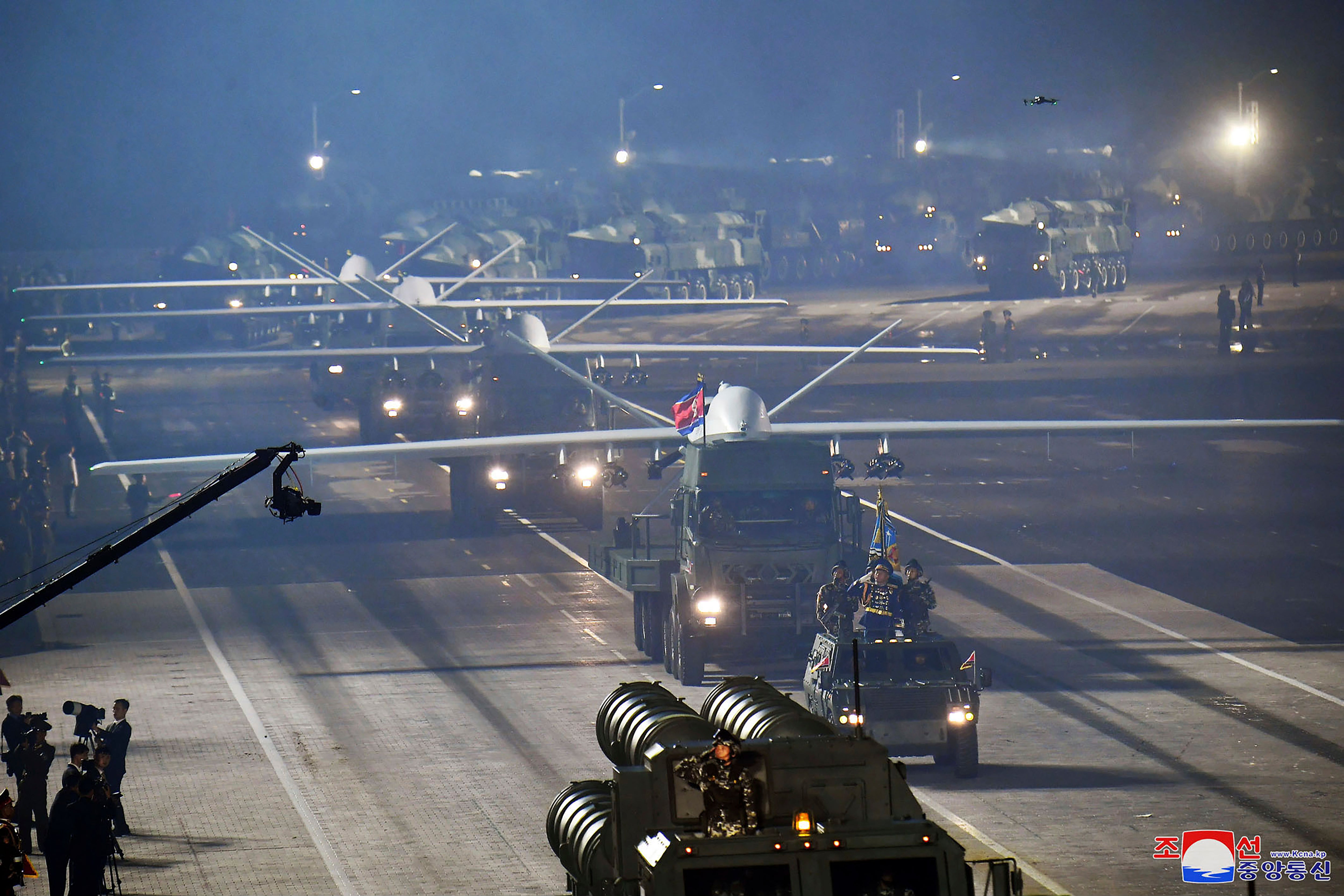South Korea to deploy laser weapons to intercept North Korean drones
South Korea will deploy laser weapons systems designed to intercept will begin deploying laser weapons systems designed to intercept North Korean drones, as their launches in recent years have caused security concerns in the South

Your support helps us to tell the story
From reproductive rights to climate change to Big Tech, The Independent is on the ground when the story is developing. Whether it's investigating the financials of Elon Musk's pro-Trump PAC or producing our latest documentary, 'The A Word', which shines a light on the American women fighting for reproductive rights, we know how important it is to parse out the facts from the messaging.
At such a critical moment in US history, we need reporters on the ground. Your donation allows us to keep sending journalists to speak to both sides of the story.
The Independent is trusted by Americans across the entire political spectrum. And unlike many other quality news outlets, we choose not to lock Americans out of our reporting and analysis with paywalls. We believe quality journalism should be available to everyone, paid for by those who can afford it.
Your support makes all the difference.South Korea said Thursday it will begin deploying laser weapons systems designed to intercept North Korean drones, which have caused security concerns in the South in recent years.
South Korea’s Defense Acquisition Program Administration said that it will deploy at least one anti-air laser weapons system called “Block-I” by the end of this year and more in coming years.
An agency statement said the “Block-I” system is capable of launching precision attacks on small incoming drones and multi-copters. It said the system, developed by local company Hanwha Aerospace, costs just 2,000 won (about $1.50) per shot.
“We face North Korea on our doorstep and its drones pose present threats to us, so that's why we've been aiming to build and deploy laser weapons soon to cope with them,” an agency official said, requesting anonymity because he wasn’t authorized to speak to media on the issue.
He said that other countries like the United States and Israel are ahead of South Korea in laser weapons technology, but their primary focus has been on higher-powered laser guns that can shoot down incoming ballistic missiles. South Korea also hopes to develop such anti-missile laser weapons, which its defense procurement agency called “a game changer” in future combat environments.
The “Block-I” system is meant to hit circuit boards and other equipment in enemy drones to make them malfunction and crash on the ground. Tests of the weapons system in 2022-2023 were successful and proved its credibility, the official said.
Some experts questioned the technology.
Lee Illwoo, an expert with the Korea Defense Network in South Korea, doubts how effectively South Korea can use its laser weapons since its anti-air radar systems aren't advanced enough to detect North Korean drones well. He said the range of a laser weapon is relatively short, so high-power microwave weapons would be better when enemy drones are flown in large numbers simultaneously.
Jung Chang Wook, head of the Korea Defense Study Forum think tank in Seoul, said South Korea is likely about five years away from acquiring a functioning laser weapon that can shoot down the drones used by North Korea.
North Korea has periodically flown drones across its heavily fortified border with South Korea for several years, in what observers have called tests of South Korean readiness. In December 2022, South Korea accused the North of sending drones across the border for the first time in five years. South Korea fired warning shots and launched fighter jets and helicopters but failed to shoot down any of the drones.
In a key political meeting in December 2023, North Korean leader Kim Jong Un vowed to introduce various types of unmanned combat equipment such as attack drones for 2024. Foreign experts say Kim likely regards drones as a cheap yet effective method to trigger security jitters and an internal divide in South Korea.
Animosities between the two Koreas, split along the world's most heavily fortified border, have deepened in recent months, with North Korea flying trash-carrying balloons toward South Korea in response to South Korean activists floating political leaflets via their own balloons.